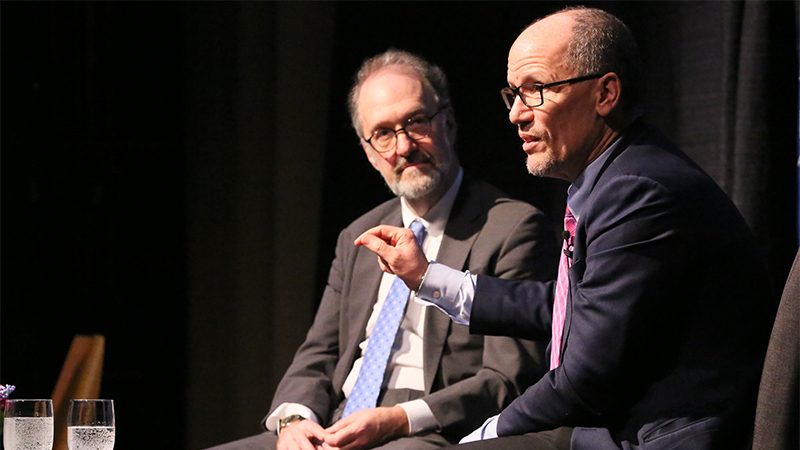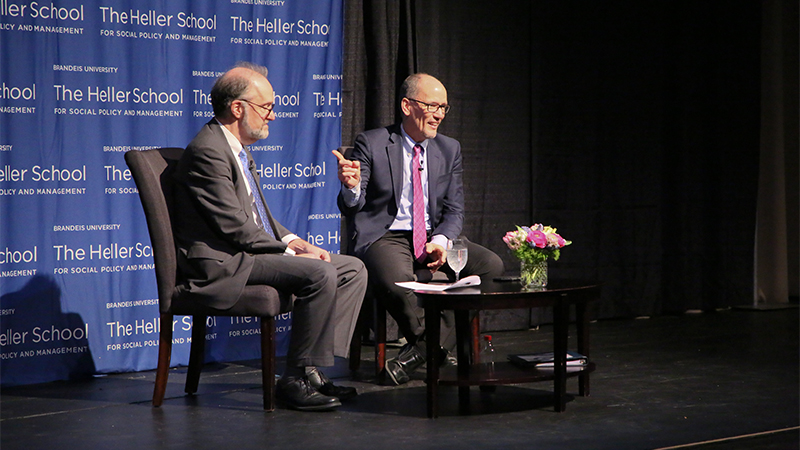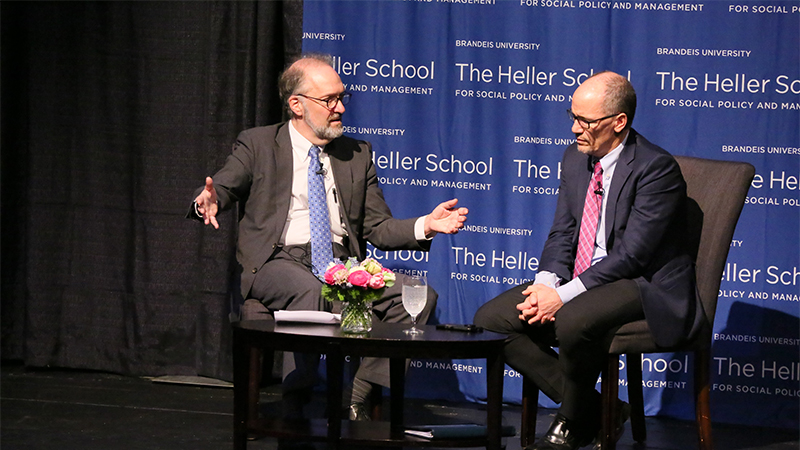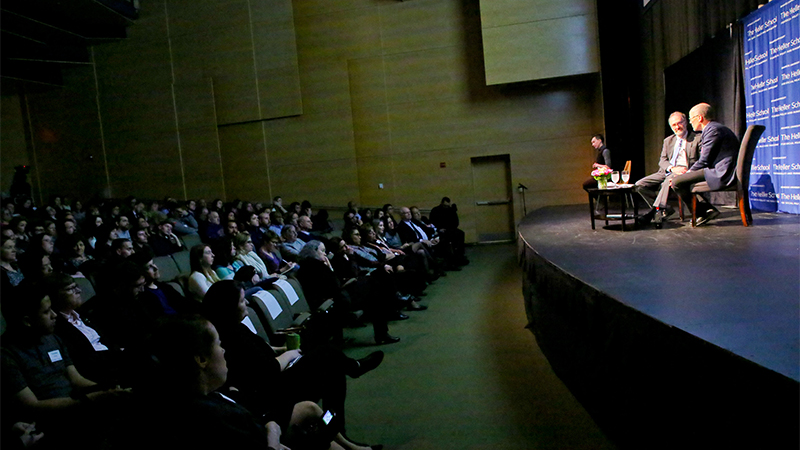On April 1, the Heller School welcomed Democratic National Committee Chair and former U.S. Secretary of Labor Tom Perez for a public conversation with Dean David Weil. The event, part of the Conversations with the Dean speaker series, featured a wide-ranging dialogue on Perez’ life and career, his thoughts on progressive politics and his strategy for advancing Democratic candidates in 2020.
Perez spoke of his upbringing in Buffalo, New York, as the child of Dominican immigrants, and of his early career as a civil rights attorney in the Department of Justice and the Department of Health and Human Services. He’s worked at every level of government and under Republican and Democratic administrations. “The connective tissue,” he says of his career path, “is making a difference in the lives of people who don’t have a voice.”
Weil and Perez worked together during the Obama administration, when Perez served as Secretary of Labor, overseeing Weil as administrator of the Wage and Hour Division. Perez spoke fondly of the work he and Weil did to expand overtime pay and other basic protections for workers. The best part of being a Cabinet member was “helping people at scale,” Perez said. He lauded career public servants as “the spine” of the government, urging Heller students to consider public service jobs, and jokingly referring to political appointees as “summer help.”
In 2017, Perez was elected chair of the Democratic National Committee. His main goal: to facilitate voter turnout and build up the party’s grassroots organizing capabilities. “A good organizer is a force multiplier,” he said.
“We have to engage voters where they consume their news, which for the younger generation is here,” he added, holding up his cell phone. Under his leadership, the DNC has vastly expanded its direct phone and text outreach to sporadic voters and young voters.
Perez called the wide field of 2020 Democratic candidates an “opportunity” and described several paths to reach 270 electoral votes. “We just have to replicate what we did in 2018,” he said, describing a strategy built around health care messaging and focused heavily on Pennsylvania, Wisconsin and Michigan—states Democrats lost in 2016.
“When we put hope on the ballot, we do well. When we allow others to put fear on the ballot, we don’t do so well,” he said, adding, “Never make a decision when paralyzed by fear, because it will cloud your judgement.”
In his final remarks Perez named some of his social justice heroes, saying, “What I love about the Heller School, aside from the fact that it gave me two hours to spend with [David Weil], is that I think it very much embodies the tradition of [Dr. Martin Luther] King, and [Cesar] Chavez, and [Rosa] Parks, and the suffragette movement.”




